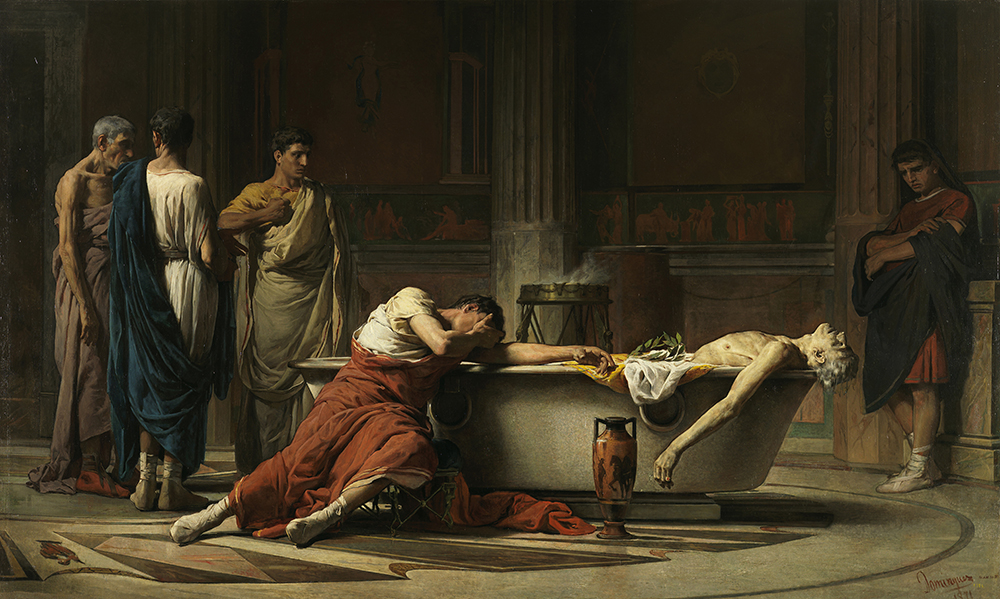What a song and dance about the end of life! Historians assure us that, among human beings, there is a long, well-established tradition of dying and if, after a life well lived, one feels enough is enough, what on earth is the problem?
Seneca, the philosopher and adviser to Nero, took a duly stoical approach: birth was a death sentence. We were in fact dying every day. Since death would get us in the end – in his case, Nero ordered him to commit suicide – it was as pointless to fear death as it was useless to run from it (he suggested that would mean simply lengthening your death rather than your life). After all, one was facing hard reality. You could not but obey Nature: Nature would certainly not obey you.
The Roman satirist Juvenal took a different line, pointing out that many idiots actually prayed for a long life, but when they got it, rather wished they hadn’t: it came with wrinkles to match any African baboon, tremulous voice and limbs, taste buds shot, no pleasure from food or wine – as for sex, forget it – inability to hear music or plays, bad hips, dodgy shoulders, lumbago, failing sight and worst of all, mental decline, forgetting slaves, friends and children. But if he did remain healthy, he simply witnessed his sons buried together with his wife and brother – a life of unending sorrow. So what ought a man to pray for? Mens sana in corpore sano, Juvenal suggested.
Seneca’s main advice was ‘End your life whenever you want to. Just make sure to attach a good ending.’ One epitaph kept it brief: non fui, fui, non sum, non curo (‘I was not, I was, I am not, I don’t care’). The emperor Augustus invited those gathered round his deathbed to applaud him for playing well his part in the comedy of life.







Comments
Join the debate for just £1 a month
Be part of the conversation with other Spectator readers by getting your first three months for £3.
UNLOCK ACCESS Just £1 a monthAlready a subscriber? Log in